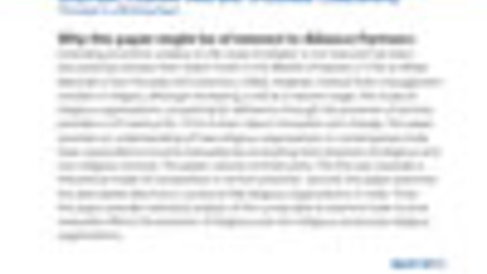
The April 2012 paper on 'Divine Innovation: Religion and Service Provision by Religious Organizations in India' by Sriya Iyer, Chander Velu and Tirthankar Chakravarty
Extending economic analysis to the study of religion is not new and has been discussed by scholars from Adam Smith in the Wealth of Nations (1776) to Alfred Marshall in the Principles of Economics (1890). However, interest from management scholars in religion, although increasing, is still at a nascent stage. The study of religious organizations competing for adherents through the provision of services provides a rich avenue for firms to learn about innovation and change. This paper provides an understanding of how religious organizations in contemporary India have responded to income inequality by innovating their provision of religious and non-religious services. The paper consists of three parts. The first part provides a theoretical model of competition in service provision. Second, the paper examines the descriptive data from a survey of 568 religious organizations in India. Third, the paper provides statistical analysis of the survey data to examine how income inequality aff ects the provision of religious and non-religious services by religious organizations.
